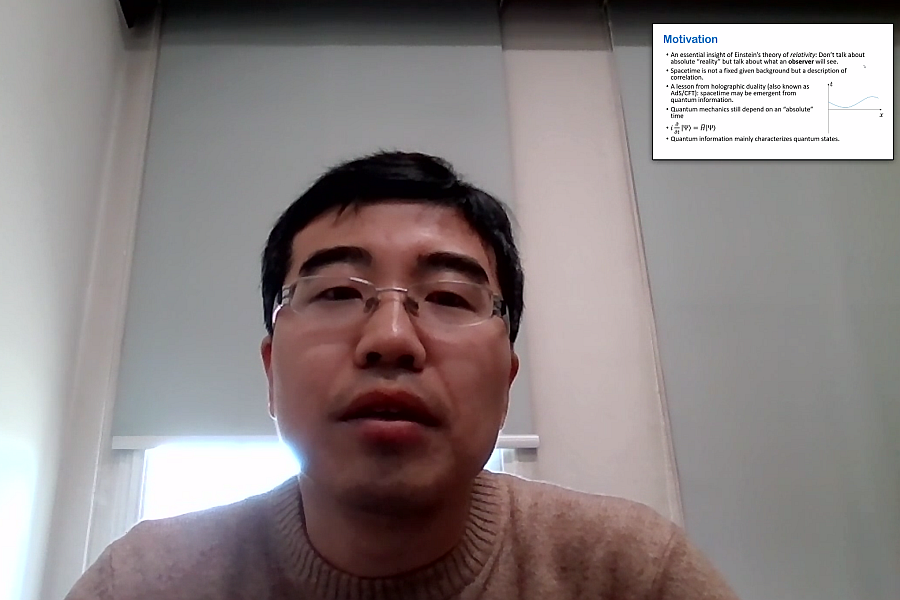Quantum Information Measure of Space-time Correlation
Abstract
Recent developments in quantum gravity suggests that the concept of spacetime is deeply related to quantum information. Most quantum information measures are defined for quantum states. For example, mutual information measures the correlation between two subsystems in a quantum state. It is natural to ask whether correlation in spacetime can be characterized by some generalization of mutual information. In this talk, the speaker and his research group propose a space-time generalization of mutual information. The key idea is to consider a general "quantum experiment" that measures the correlation between two space-time regions, and use the setup of hypothesis testing. They discuss various properties of the spacetime mutual information, including how it provides an upper bound for all connected correlation functions, which is a direct generalization of the similar property of ordinary mutual information.
About the speaker
Prof. Qi’s current research interest is the interplay of quantum entanglement, quantum gravity and quantum chaos. The characterization of quantum information and quantum entanglement has provided novel understanding to space-time geometry, and relate the dynamics of chaotic many-body systems to the dynamics of space-time, i.e. quantum gravity theory. Based on recent progress in holographic duality (also known as AdS/CFT), his goal is to use tools such as tensor networks and solvable models to provide more microscopic understanding to the emergent space-time geometry from quantum states and quantum dynamics. He is also interested in topological states and topological phenomena in condensed matter systems.
About the center
For more information, please refer to the center website at https://iascqt.hkust.edu.hk/.






